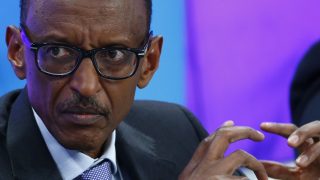In a lengthy survey using data journalists, the Financial Times this week debunked Rwanda’s supposed economic prosperity, accusing the government of manipulating its poverty statistics. The misrepresentation reportedly took place just before a referendum in 2015 that allowed President Paul Kagame to extend his then 15-year rule for up to another two decades.
According to the World Bank, Rwanda is witnessing rapid economic progress, with its Kigali city considered one of the greenest in Africa. But as other figures and reports show, the reality is that there are some grassroots Rwandans still struggling to survive on less than a dollar daily.
In the FT article titled Rwanda: Where even poverty data must toe Kagame’s line, the British daily states that its analysis of the survey’s over 14,000 data points and interviews with academics show that rising prices for Rwandan families meant poverty most likely increased between 2010 and 2014. The FT adds that there has been a “consistent attempt since 2015 to misrepresent the results” regarding poverty.
More so, opposition politicians claim that the country’s poverty level is part of a much bigger deception over economic progress in which donors, keen to laud Rwanda as a success story, have become complicit.
“[The government] is trying to convey that we are developed so they can hide what is really going on,” Diane Rwigara, who was jailed for 12 months after she challenged Kagame for the presidency in 2017, was quoted as saying by FT. “When you come here as a visitor all is put in place to impress you, but the reality is well hidden. You have to live it to believe it.”
Back in 2015, a group of academics first challenged Rwanda’s poverty statistics leading the country to revise its analysis in 2016 and the World Bank to publish its own response last year. The academic findings, some of which have been published by the Review of African Political Economy, are compelling according to independent experts. But they have been drowned out by the strength of Rwanda and the World Bank’s comprehensive denials, the FT article states.
Findings from the FT investigation are in line with a report by France 24, which in 2015 had revealed that Kigali had fiddled with its economic statistics to hide its global poverty ranking. According to the French media organization, credible insider sources said that Rwanda had changed its economic statistics to mask increasing poverty.
France 24 further explained that when Kagame changed the constitution that would allow him to rule until 2034, his administration did not want official data to be shown as an increase in the number of poor Rwandans.
Moreover, another magazine in March this year released striking facts to be considered about the poverty of Rwanda. The magazine also came to the conclusion that Rwanda skews or manipulates its economic data to hide its poverty.
Rwanda has rejected the Financial Times’ findings, and so has the World Bank. But, as analysts say, these accusations represent a dent on President Kagame’s administration as well as the World Bank’s reputation as a champion of development in Third World countries.








